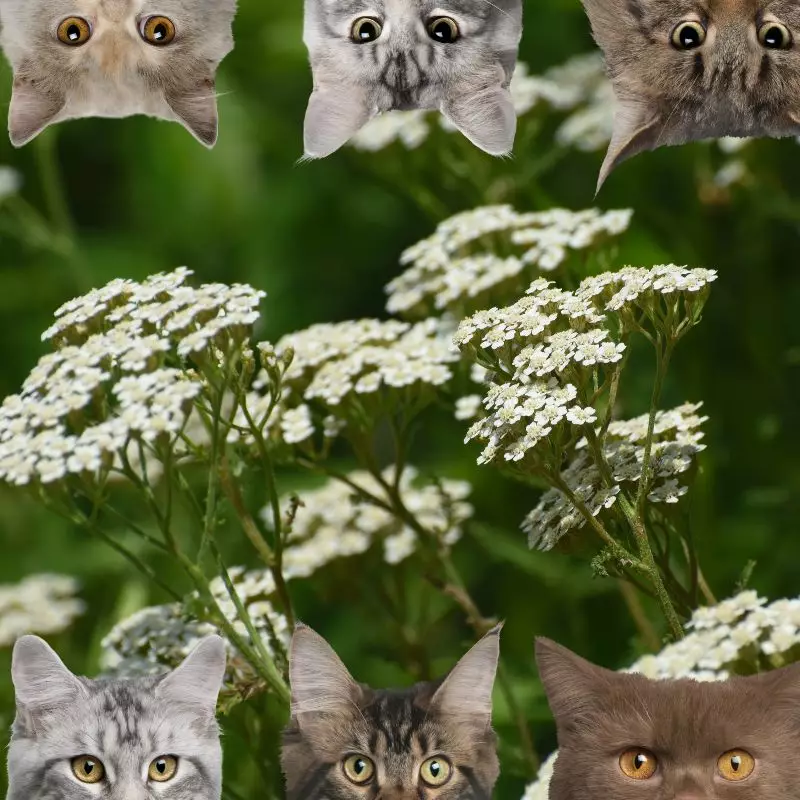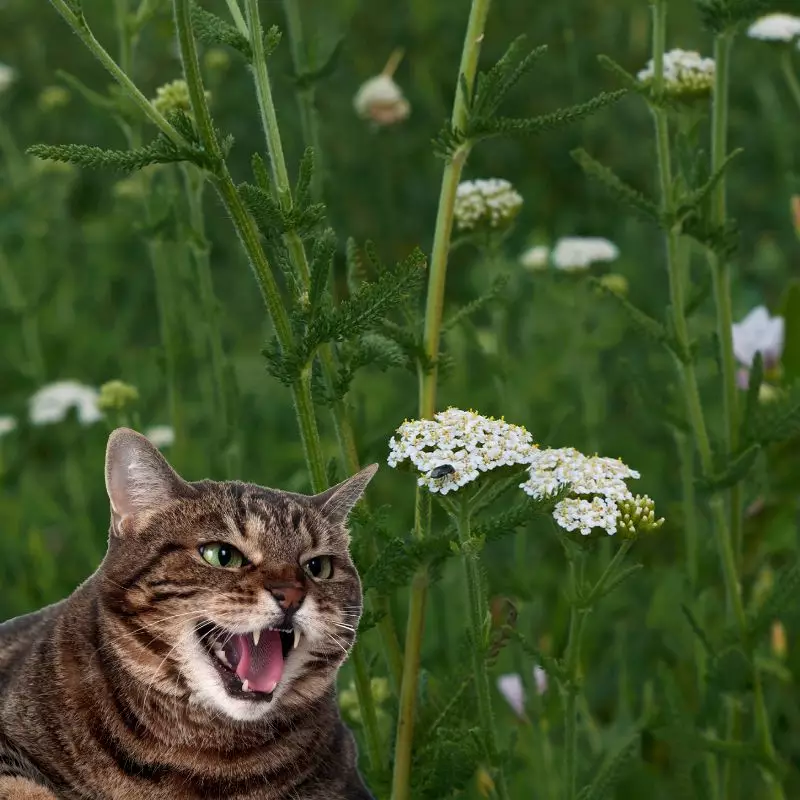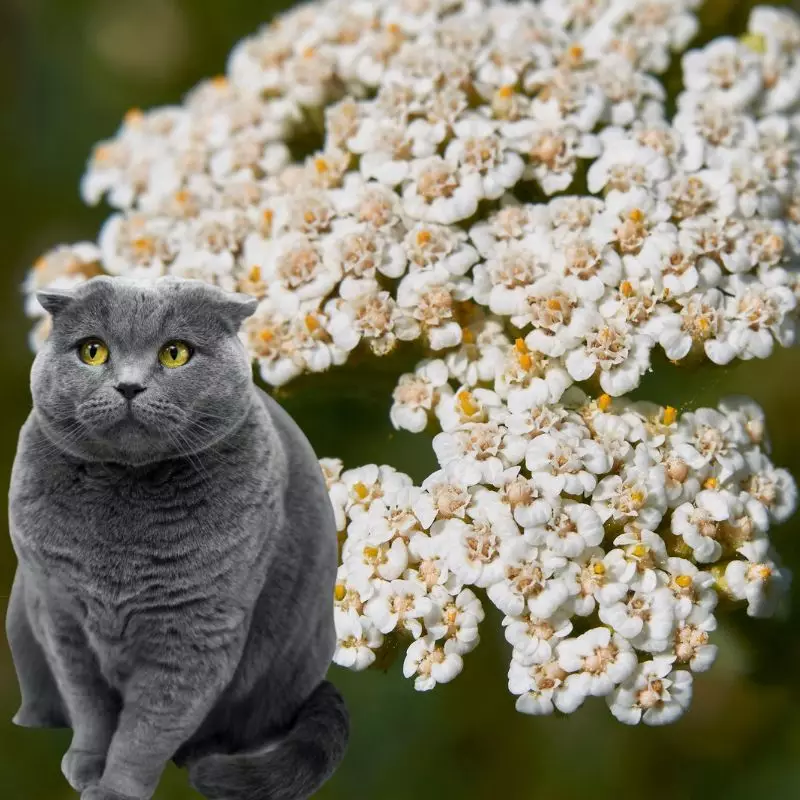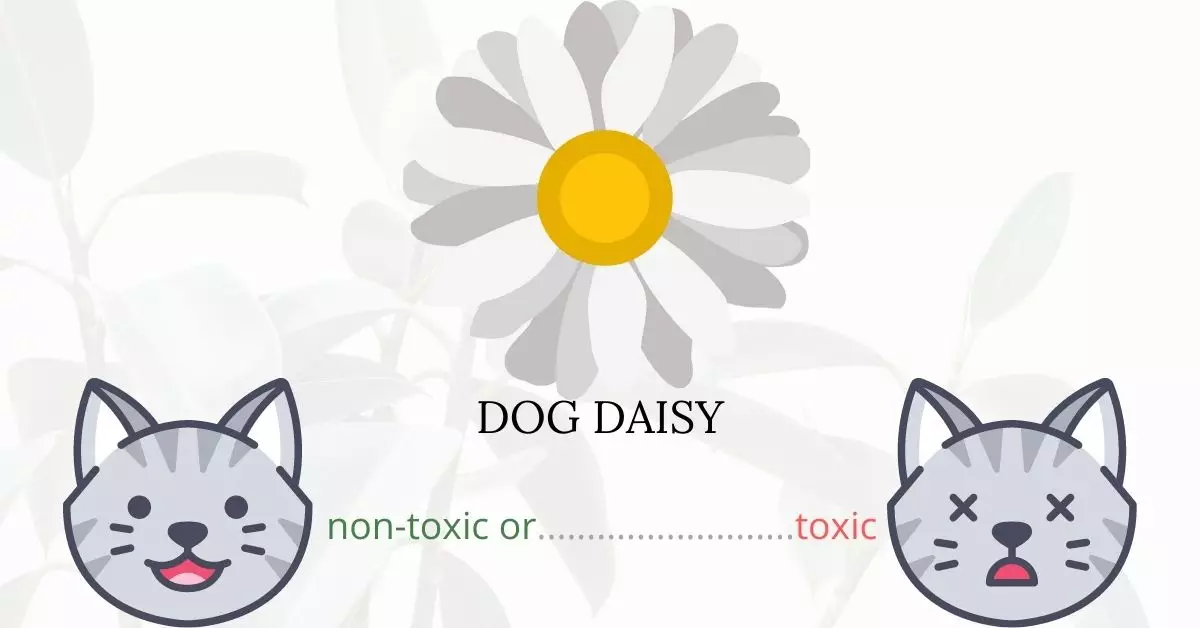The Dog Daisy, also known as Achillea Millefolium or yarrow, is toxic to cats. This plant contains compounds like achilleine glycoalkaloids, hydrolyzable tannins, and volatile oils that can disrupt a cat’s gastrointestinal tract and lead to skin irritation. Particularly, cats with allergies, those that are pregnant or nursing, or those with recent wounds or incisions may face heightened risks upon ingestion of this plant.
This article has been meticulously written in collaboration with a team of experienced DVMs (doctors of veterinary medicine). Their invaluable insights and expertise ensure the accuracy and currency of the information we present on the potential risks various plants, including Dog Daisy, pose to cats. Furthermore, to uphold the quality and trustworthiness of our content, we have extensively researched high-authority websites such as ASPCA and PetMD for each plant discussed.
Clinical Signs of Dog Daisy or Achillea Millefolium Poisoning in Cats

If your cat has come into contact with, smelled, or ingested the Dog Daisy (Achillea Millefolium or yarrow), it’s essential to be aware of the clinical signs that may manifest. Here’s a breakdown of each symptom and the reasons behind its occurrence:
- Vomiting: The achilleine glycoalkaloids present in the plant can irritate the cat’s gastrointestinal lining, leading to an expulsion reflex as the body attempts to rid itself of the toxic substance.
- Diarrhea: This is another defense mechanism of the body to expel harmful substances. The hydrolyzable tannins in the plant can disrupt the usual digestive processes, causing loose stools.
- Excessive drooling: The bitter taste and immediate irritation from the plant’s chemicals can stimulate an increase in salivation as a protective mechanism to dilute and wash away the irritants.
- Loss of appetite: Feeling of nausea or discomfort from the plant’s toxins can make the cat reluctant to eat.
- Excessive urination: The body might attempt to flush out toxins through increased urination, an effect potentially exacerbated by certain compounds in the Dog Daisy.
- Lethargy: The overall toxic effect on the cat’s system, combined with the body’s efforts to detoxify, can lead to decreased energy levels.
- Drowsiness: As with lethargy, the body’s response to the toxins can result in a sedative effect, making the cat feel unusually sleepy.
- Skin irritation: Contact with the volatile oils in the Dog Daisy can lead to skin reactions. This can manifest as redness, itching, or even small bumps, especially if the cat has rubbed against or chewed on the plant.
If you observe any of these signs in your cat after suspected exposure to the Dog Daisy, it’s imperative to seek veterinary assistance promptly.
First Aid and Treatment of Dog Daisy or Achillea Millefolium Poisoning in Cats

Depending on the extremities of your cat’s situation, the veterinarian may order laboratory testing in addition to a comprehensive physical examination. The vet’s main focus is on treating the symptoms that your cat is experiencing. It is fairly common for a cat to get dehydrated after evacuating its gastrointestinal contents for an extended length of time. Intravenous fluid administration can assist rehydrate the cat and keeping it as healthy as possible while it deals with the poison’s consequences. Activated charcoal may be also utilized to aid in clearing your cat’s stomach. Other therapy and medications may be also prescribed by the doctor as he may deem necessary for your cat’s recuperation.
Recovery from Dog Daisy or Achillea Millefolium Poisoning in Cats

Poisoning from dog daisies or achillea millefolium rarely results in death. Once all of the toxic material from the plant has passed through the body, most cats will recover completely. The poisoning should not have any long-term consequences. Although, dog daisy poisoning can cause miscarriage in pregnant cats. It is also recommended that mother cats who have taken dog daisy or yarrow not be allowed to nurse their kittens.
Prevention of Dog Daisy or Achillea Millefolium Poisoning in Cats
Keeping your cat indoors is the most ideal way to prevent exposure to dog daisies and other toxic plants. Utilize cat houses or playpens where they can be occupied and entertained while staying safe. Building plant terrariums with non-toxic plants is also helpful particularly if your cat is a nibbler.
If you love plants but have cats at home, check out these lists:





